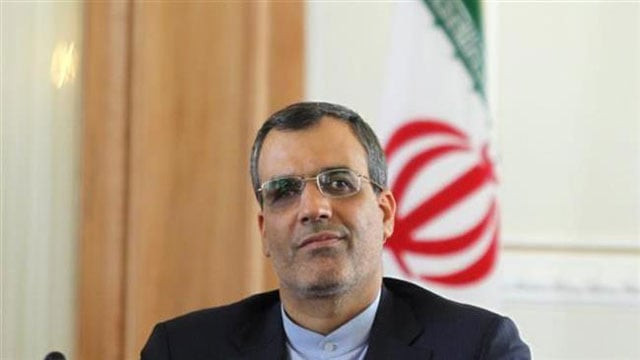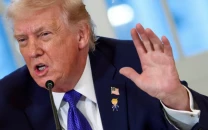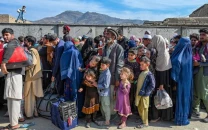Iran sees Israeli lobby behind US visa waiver changes
Foreign ministry says US measure had been passed "under pressure from Zionist lobby and currents opposed to JCPOA"

Iran's foreign ministry spokesperson Hossein Jaberi Ansari. PHOTO COURTESY: PRESS TV
The measure, which President Barack Obama signed into law on Friday, also applies to Iraq, Syria and Sudan, and was introduced as a security measure following the Islamic State attacks in Paris and similar attacks in San Bernardino.
Turkey's Erdogan meets Hamas leader Meshaal in Istanbul
Iran, a Shia Muslim theocracy staunchly opposed to Sunni radicalism, says its inclusion on the list is intended to undermine a nuclear deal that Tehran reached with world powers, including the United States, in July, known as the JCPOA.
Foreign Ministry Spokesperson Hossein Jaberi Ansari said in a televised news conference that the US measure had been passed "under pressure from the Zionist lobby and currents opposed to the JCPOA".
Citizens of 38 countries, most of them in Europe, are eligible for waivers under the US Visa Waiver Program. Under the new restrictions, citizens who have visited Iran, Iraq, Syria or Sudan in the last five years, and those who hold dual nationality with one of those countries, are excluded.
The measure was introduced after 130 people were killed in the Islamic State attacks in Paris on Nov. 13. Several of the attackers had European passports, and some had travelled to Islamic State's territory in Syria.
Iran says it will keep backing Syria regime
Iran's Foreign Minister Mohammad Javad Zarif on Friday said it was "absurd" that Iran should be included on the list. "No Iranian nor anybody who visited Iran had anything to do with the tragedies that have taken place in Paris or in San Bernardino or anywhere else," he said in an interview with Middle East-focused website Al Monitor.
Nuclear fallout
Iranian officials have said the measure will adversely affect bilateral relations. Some suggest the measure is effectively a new sanction against Iran that could jeopardise the nuclear deal, which Iran only agreed to on condition of sanctions being lifted.
"Existing sanctions not yet lifted, additional sanctions imposed," ran the front-page headline of the hardline daily Kayhan on Monday.
US Secretary of State John Kerry wrote to Zarif on Saturday to assure him that Washington remained committed to the JCPOA, noting that the White House can waive the new requirements in individual cases.
Iran closes capital's schools due to air pollution
But Ali Shamkhani, the secretary of Iran's National Security Council, which is responsible for ensuring the United States and other powers abide by the deal, warned that the measures would drive mistrust between the two countries.
"It could have irreversible effects on the implementation of mutual commitments under the JCPOA," Shamkhani was quoted as saying by state news agency IRNA.









1733130350-0/Untitled-design-(76)1733130350-0-208x130.webp)









COMMENTS
Comments are moderated and generally will be posted if they are on-topic and not abusive.
For more information, please see our Comments FAQ